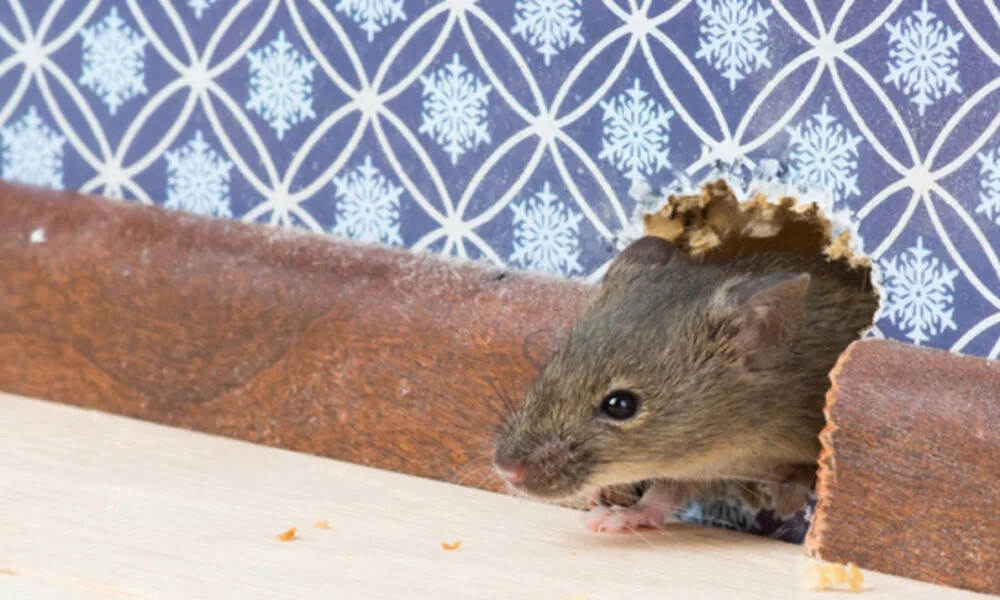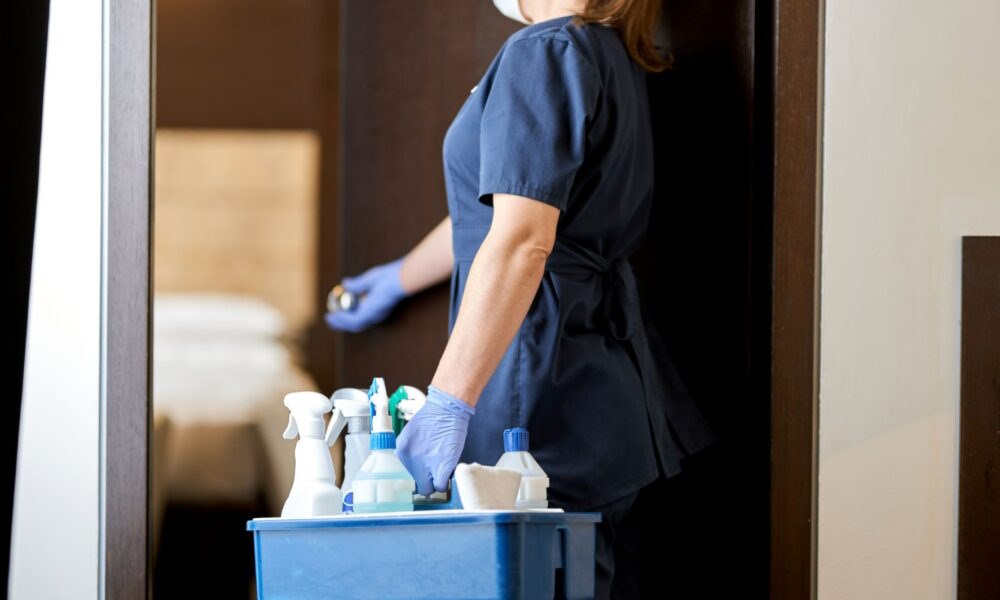Content
In urban environments, rodents actively reproduce, creating inconvenience for residents and entrepreneurs. Problems with the appearance of rats and mice can arise both from ordinary residents of apartment buildings and from owners of various businesses, shops, salons and hotels.
These rodents not only cause damage to food supplies, furniture and personal belongings, but can also become the basis for complaints from regulatory authorities. Without timely precautions, you risk facing serious problems, including loss of business.
Why are rats and mice dangerous?
Of course, the appearance of rats and mice disgusts people. If visitors to your hotel encounter rodents in their rooms or restaurant, they will likely be reluctant to return and your review will have a negative connotation. The presence of rodents in a hotel premises can seriously damage your reputation. However, these problems are not the only ones.

Rats and mice can destroy food supplies, damage furniture and electrical wiring, which can lead to short circuits and fires. In addition, rodents are carriers of various dangerous diseases.
Some of the infections transmitted by rats and mice include:
- Encephalitis;
- Rabies;
- Tularemia;
- Typhoid fever;
- Leptospirosis;
- Dysentery;
- Tuberculosis.
This is not a complete list of possible infections that can be spread by rodents. Many of these diseases are difficult to treat or cannot be treated at all. If the reputation of your business and concern for the health of your customers is important to you, it is necessary to carry out deratization measures in a timely manner.
What is deratization
Many people make attempts to cope with the problem of rodents on their own, using various methods, such as homemade recipes, setting traps with household poisons and others. However, it is not always possible to successfully cope with an invasion of rats and mice with independent efforts.
Failures can occur for several reasons. For example, the habitats of rodents were incorrectly determined; rats could adapt to household poisons and stopped reacting to them. It is also difficult to destroy the rodent population on your own if there are too many of them. In such cases, professional pest control comes to the rescue.
Deratization involves a set of measures to combat rodents. Experts destroy populations of rats and mice in the basements of residential buildings, warehouses, enterprises, shops and hotels. Their methods are more reliable and effective, in addition, experts can help with proper prevention of the appearance of rats and mice.
Types of deratization
Deratization is aimed at preventing the appearance of rats and mice, as well as their complete destruction in various places, including residential premises, businesses, shops, hotels and other objects.
The main areas of deratization include:
- Preventive actions.
- Measures to exterminate rodents.

Preventive measures are aimed at preventing the appearance of rodents and include the following recommendations:
- Keep all areas clean and tidy, avoiding dirt, unsanitary conditions and clutter that create favorable conditions for rodents.
- Do not leave food in open places; store it in cabinets and refrigerators.
- Regularly remove garbage from the territory and ensure its timely removal.
- Seal cracks through which rodents can enter the room from the street.
- Invite specialists to inspect and treat premises, including rooms, hallways, basements, as well as garbage containers and areas around the hotel.
Preventive deratization is a requirement of SanPin, and after the activities you will receive the necessary documents for the regulatory authorities.
Methods of professional and independent deratization
There are many methods of fighting rats and mice, both professional and DIY. Let's look at some of them:
- Mechanical methods: Includes the use of mousetraps, rat traps, snares and glue traps. These methods are effective and safe for people and do not harm the environment. Traps are convenient for use in hotel premises.
- Biological methods: Based on the use of natural enemies of rodents, such as cats. Professional methods include the use of special bacteria and microorganisms that are harmful to rodents.
- Chemical methods: Includes the distribution of toxic substances indoors. All possible rodent habitats are being processed. Chemicals, both household and professional, are highly effective.
- Aerobic methods: They include treating rooms with cold fog using special generators. These drugs are harmful to rodents, but harmless to humans.
- Ultrasound methods: These methods are often used in everyday life. Ultrasonic repellers affect the nervous system of rodents, forcing them to leave the area. However, the effectiveness of this method may be questionable and the rodents may return over time.
The hotel can independently use mechanical, chemical and ultrasonic methods of rodent control. In case of failure, it is recommended to contact professionals.
The procedure for carrying out deratization work
Rospotrebnadzor strongly recommends carrying out preventive and extermination measures for deratization at various facilities.
The scope of regular deratization includes the following objects:
- Residential buildings: Applies to both private houses and apartment buildings, with special attention to basements.
- Enterprises and warehouses: Especially those related to the food industry.
- Treatment and prevention complexes and medical institutions.
- Shops, retail outlets, catering establishments, markets.
- Water supply organizations.
- Hotels and inns.
Mandatory preliminary diagnostics of the territory includes an assessment of the area of the object, determination of the type and number of rodents. After collecting the necessary data, disinfection specialists develop a plan and method for their extermination.
Specialists select appropriate methods, drugs and their dosage. After this, the premises and surrounding areas are processed. Upon completion of the work, disinfectors evaluate the results and, if necessary, prescribe re-treatment.
Hotel owners receive advice on preventing the recurrence of pests and the necessary documentation for regulatory authorities.
It is necessary to remember the requirements of Rospotrebnadzor for regular prevention of rodents. Some measures can be carried out independently, but to treat the premises it is better to turn to professionals.
Sanitary services requirements
The basic standards and frequency of deratization work are defined in the document SanPiN 3.3686-21, which establishes the requirements for the destruction of rodents and control of their spread.
According to the sanitary standards of Rospotrebnadzor, the following measures are mandatory:
- Regular sanitary inspection of premises.
- Maintaining cleanliness and order, ensuring free access to inspect the facility.
- Exclusion of access to water and food for rats and mice during deratization.
- An obstacle for rodents in nesting and shelter.
Compliance with these rules not only maintains the hotel's reputation, but also ensures the smooth running of the business. Violation of sanitary standards can lead to the suspension and even closure of the enterprise.
The frequency of deratization measures is also regulated by SanPiN 3.3686-21. According to this document, it is recommended to carry out preventive deratization in hotels and inns on a monthly basis. If signs of the presence of rodents are detected, it is necessary to carry out unscheduled extermination control immediately.
How to prepare for pest control
To ensure the effectiveness and safety of deratization in the shortest possible time, as well as to protect you and your guests, it is necessary to carefully prepare the hotel premises before the arrival of a team of specialists.
Steps to prepare a room for pest control include:
- Remove all food from open surfaces.
- Cover or remove all utensils.
- Cover houseplants and aquariums tightly.
- Cover office equipment with foil.
Deratization work should be carried out in the absence of people and pets. Only disinfection specialists are allowed to be on site during processing. After completing the procedure, it is important to follow all recommendations provided by the disinfectors.
Actions after completion of deratization
After completing the work of specialists, it is recommended to strictly follow their recommendations and instructions. This will not only improve the effectiveness of the deratization carried out, but will also ensure the safety of everyone present.

At the end of the deratization process, when specialists have already left the premises, it is recommended to refrain from returning to it for several hours. After the required time has passed, all rooms, including rooms, hallways and utility rooms, should be thoroughly ventilated. It is also recommended to carry out wet cleaning to remove possible residues.